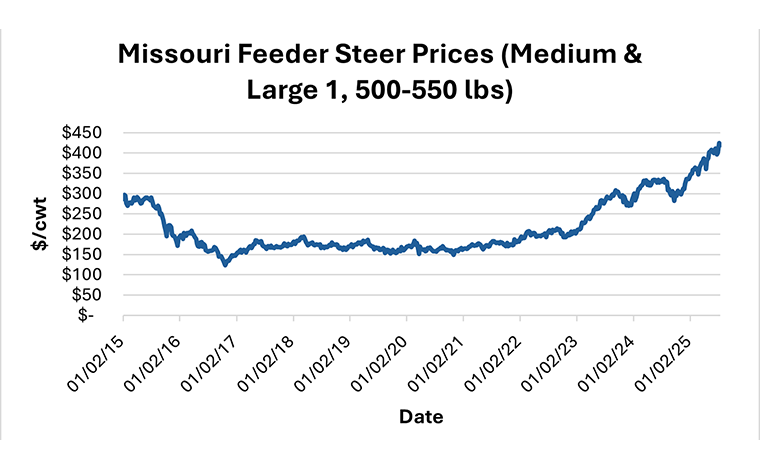
Hot markets, tax changes call for new planning
Rising cattle prices raise tax bills. New laws like bonus depreciation and higher Section 179 limits help plan ahead.
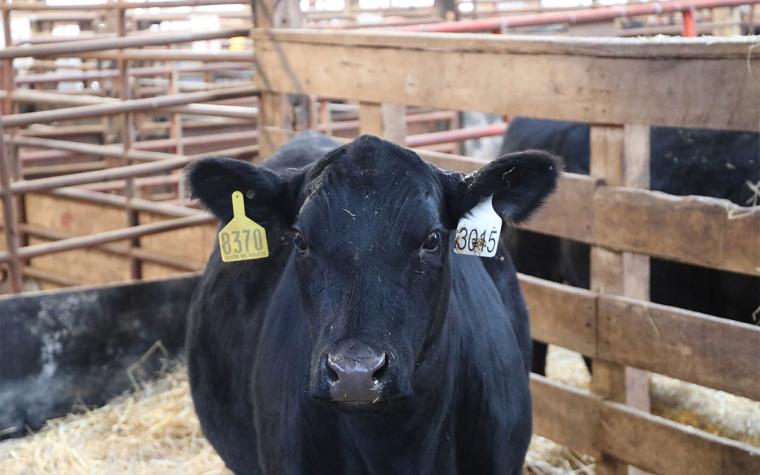
Early pregnancy checking and culling open heifers improves efficiency, bottom line
Learn how early pregnancy detection and timely culling of non-pregnant heifers boosts herd efficiency, sale value, and feed resource use.

Review biosecurity basics to keep your herd safe
Summer is a good time to review how to prevent disease from coming onto your farm, says University of Missouri Extension dairy specialist Chloe Collins.
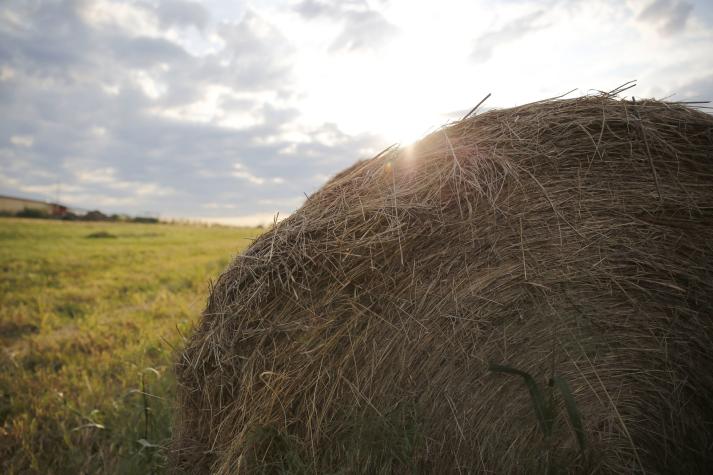
10 reasons you should quit making hay
High equipment costs, time constraints, and soil degradation make hay production less profitable. Explore alternatives like grazing and stockpiling forage.
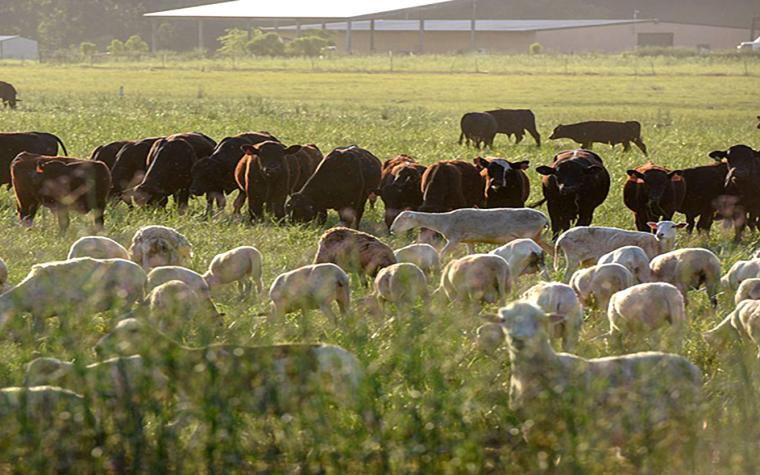
Cattle and forage management for grazing success
Implement strategies to improve cattle and forage management for year-round grazing success.
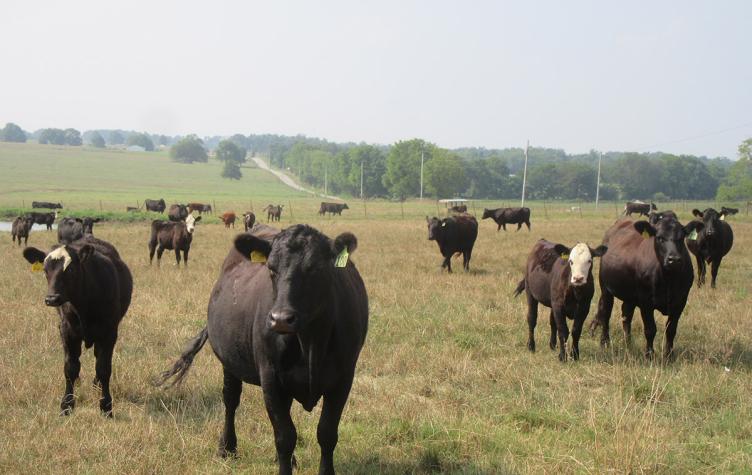
Prepare cattle for second heat wave
Learn strategies to protect cattle from heat stress, including providing shade, fresh water, and proper ventilation to maintain animal health.
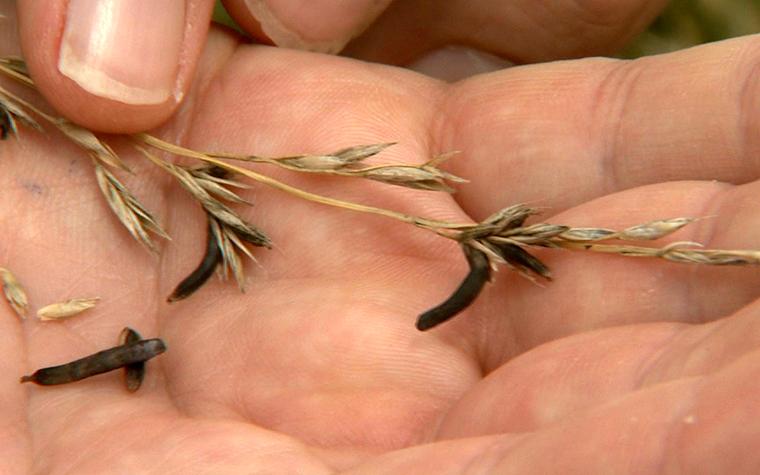
Making hay to reduce ergot infestation
Learn how to manage ergot infestations in pastures to protect livestock health. Tips on mowing, haymaking, and recognizing symptoms of ergot poisoning.
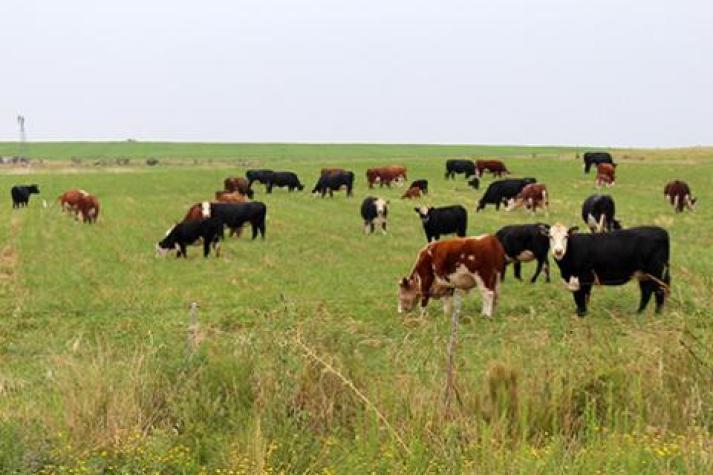
Make sure foot rot doesn't affect your bottom line
Foot rot in cattle can lead to lameness and decreased profitability. Prevention includes proper hoof care and adequate trace minerals.
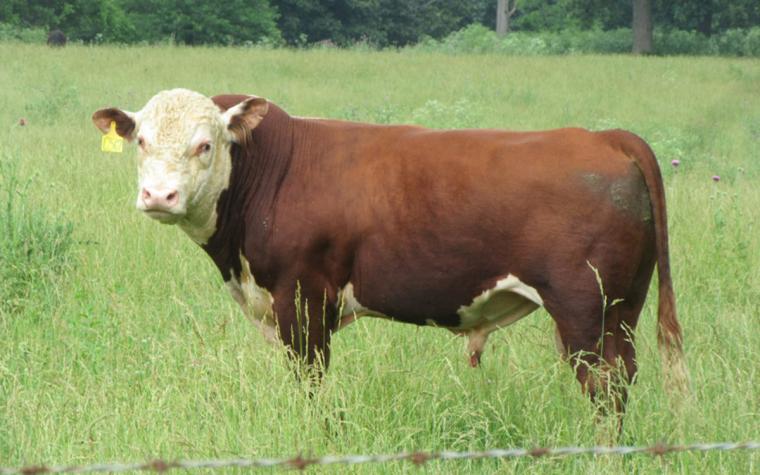
Results from spring SW Mo. Bull Breeding Soundness Exam Days
“Calf production is perhaps the most important metric that supports the existence of the cattle industry, making bull health and productivity incredibly important” says Ian McGregor, University of Missouri Extension livestock field specialist.

Tall fescue adds to heat stress in cattle
Cattle rid their bodies of heat in three ways: radiation, convection and evaporation. “If your cattle can’t use all three methods, they’ll overheat fast,” says University of Missouri Extension state beef nutrition specialist Eric Bailey. Summer heat knocks weight off calves and pounds off milk, Bailey says. “Heat stress costs real money.”

Show-Me-Select spring heifer sales top $2 million
Some record high prices marked the spring sales of Show-Me-Select bred heifers. The combined gross amount from the five regional sales was $2,321,900 for 602 bred heifers.
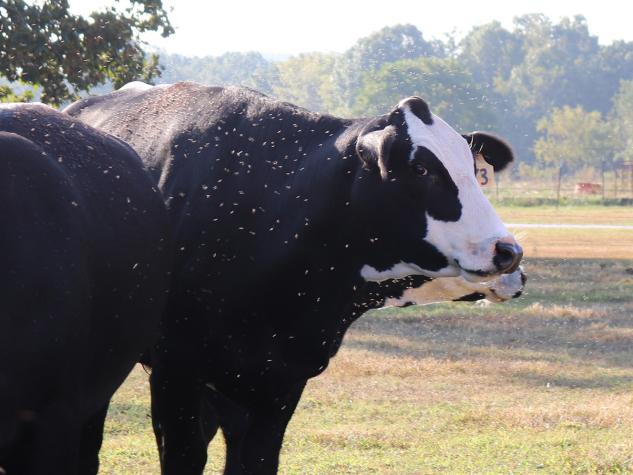
Fly and tick control in cattle
It’s the time of year when flies and ticks start becoming a problem for cattle, and they can be more than just a nuisance. “These external parasites not only cause irritation and stress but also reduce production efficiency and serve as vectors for certain cattle diseases,” said Craig Payne, University of Missouri director of veterinary extension.
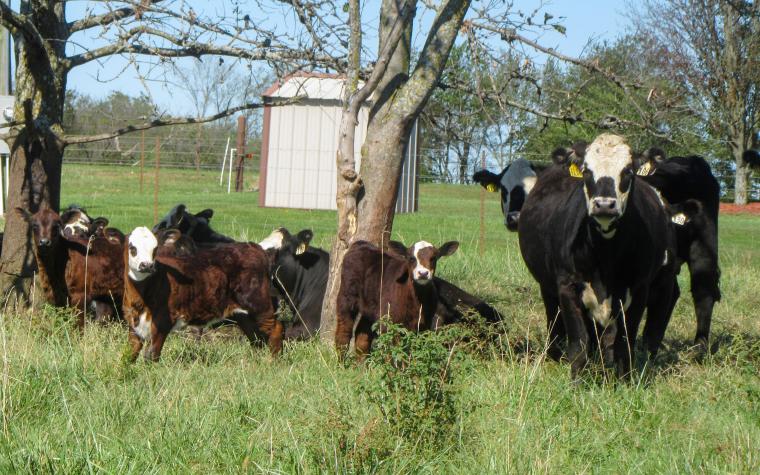
Use fenceline weaning to improve calf postweaning performance
STOCKTON, Mo. – “Postweaning calf performance is important to cow-calf operators and future calf owners,” says Patrick Davis, University of Missouri Extension livestock field specialist. Optimum performance is achieved by reducing weaning stress. Davis discusses fenceline weaning as a management strategy to reduce weaning stress, which ultimately reduces sickness and improves calf performance postweaning.
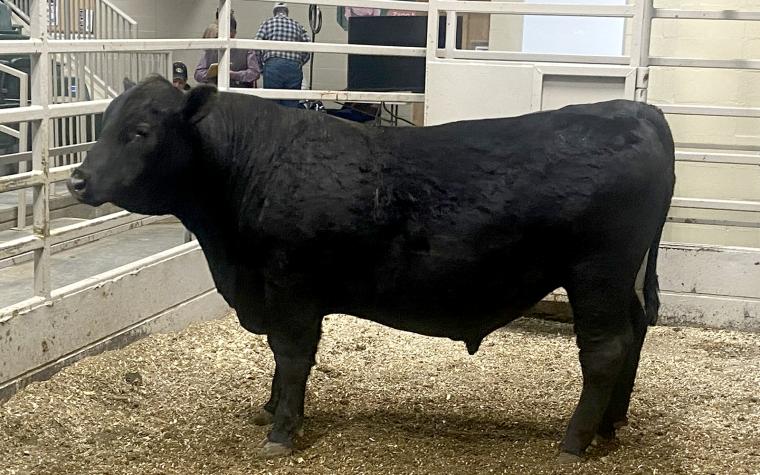
Good cattle market led to a strong bull sale in Springfield
High cattle prices powered a strong bull sale in Springfield, averaging $5,458 across 26 bulls—around $1,600 more per head than spring 2024.

Produce high-quality hay to reduce cattle supplementation
STOCKTON, Mo. – “Hay harvest is approaching, and producing high-quality hay reduces cattle supplementation,” says Patrick Davis, University of Missouri Extension livestock field specialist. Davis discusses harvest management strategies to achieve optimal hay quality.
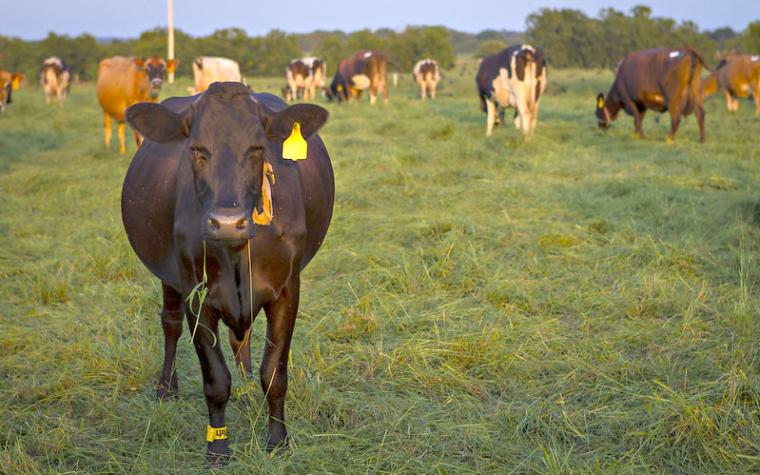
Cattle farmers: Is it time for a budget checkup?
Many Missouri cattle producers are gearing up for the hay season. Spring can be hectic on the farm, but it’s also an important time to check on where you’re heading financially.

Pre-breeding exams for replacement heifer selection
WEST PLAINS, Mo. – For cow-calf producers, it is ideal to have one healthy calf on the ground per cow per year. Producers should also strive to have cows that are productive in the herd for many years. On average, a cow must stay in the herd for six years for the producer to break even on that cow’s initial investment along with yearly maintenance costs.
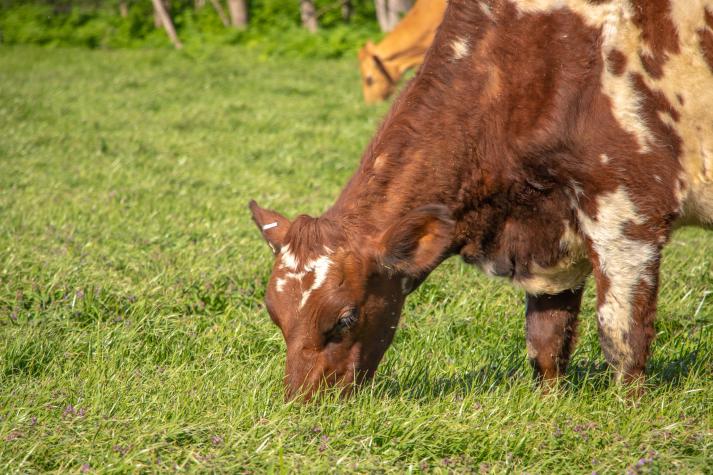
Use sacrifice pastures now to spare best pastures for later
STOCKTON, Mo. – “Cattle producers welcome the rain, but it leads to muddy pastures and proper management is needed for optimum grazing the rest of the year,” says Patrick Davis, University of Missouri Extension livestock field specialist. Davis feels sacrifice pastures may be needed to help in promoting forage production for the rest of the grazing season.

Add magnesium to prevent grass tetany in cattle
STOCKTON, Mo. – “As spring and lush grass growth arrives cattle producers need to plan for prevention of grass tetany,” says Patrick Davis, University of Missouri Extension livestock field specialist. Grass tetany arises from a cattle mineral imbalance, so Davis suggests cattle producers use management strategies discussed below to reduce the incidence in their cattle operations.
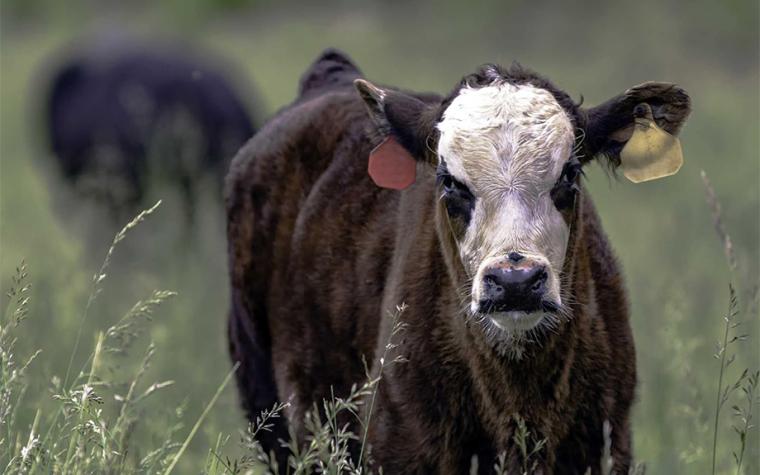
Understanding grass tetany in beef cows
COLUMBIA, Mo. – If you’ve ever seen a cow suddenly collapse in early spring, seemingly out of nowhere, you might have witnessed a case of grass tetany, says University of Missouri Extension state beef nutritionist Eric Bailey.
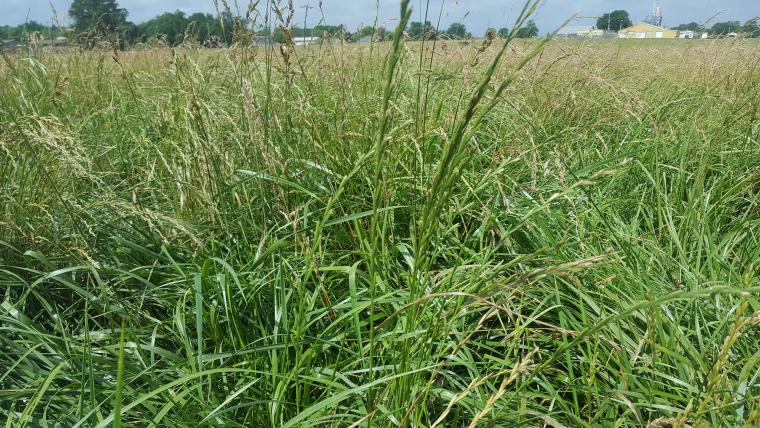
Timing, flexibility key to grazing tall fescue spring flush
COLUMBIA, Mo. – Proper management of the spring flush of tall fescue gives pastures and cattle a head start for the rest of the grazing season, says University of Missouri Extension state forage specialist Harley Naumann.

Avoid financial heartbreak after drought
Learn strategies to reduce financial loss after drought by adjusting pasture management and considering native warm-season grasses.
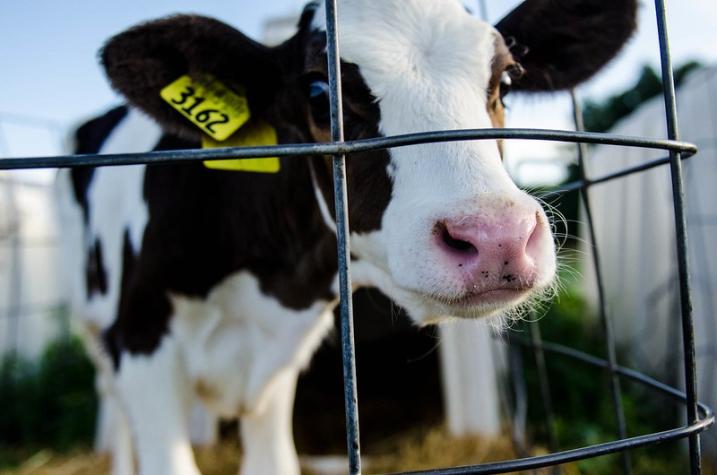
MU Extension publishes vaccination overview for cow-calf operations
Explore essential vaccination strategies for cow-calf operations, covering key diseases, vaccine types, and sample schedules to enhance herd health.
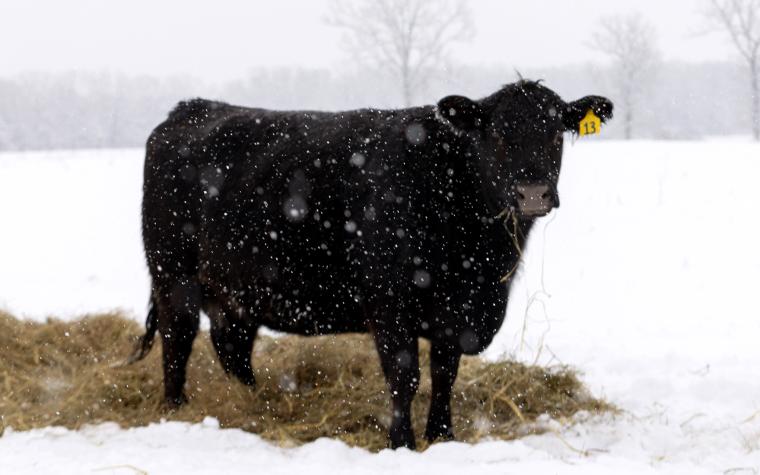
Mitigating pregnancy loss in cow herds
MOUNTAIN GROVE, Mo. – With spring calving season underway, producers want as many healthy calves on the ground as possible. “A lot of folks see pregnancy loss within their herd and think of it in two ways: either a cow aborting a calf during gestation, or losing the calf after it is already made it on the ground,” said Chloe Collins, University of Missouri Extension dairy specialist. But multiple factors go into pregnancy loss, both…

The skinny on what your hay bales really weigh
Hay bale weight varies with moisture and density. Learn how to estimate actual weight for better feeding and management decisions.